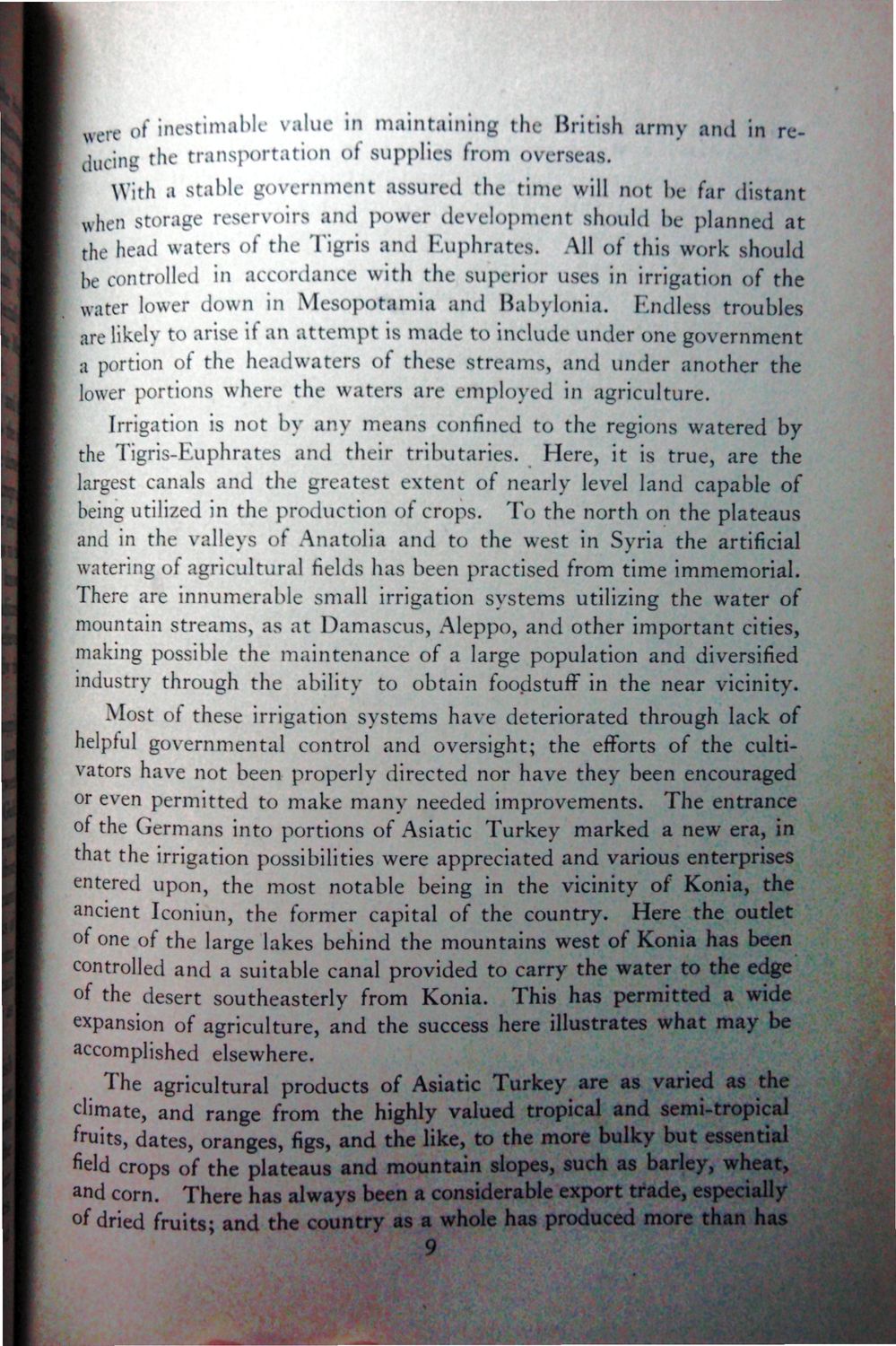| |
| |
Caption: War Publications - WWI Compilation 1923 - Article 23
This is a reduced-resolution page image for fast online browsing.

EXTRACTED TEXT FROM PAGE:
oi inestimable value in maintaining th British army and in re[ Cueing the transportation of supplies from overseas. With a stable government assured the time will not be far distant when storage reservoirs and power development should be planned at the head waters of the Tigris and Euphrates. All of this work should be controlled in accordance with the superior uses in irrigation of the water lower down in Mesopotamia and Babylonia, Endless troubles are likely to arise if an attempt is made to include under one government a portion of the headwaters of these streams, and under another the lower portions where the waters are employed in agriculture. Irrigation is not by any means confined to the regions watered by the Tigris-buphrates and their tributaries. Here, it is true, are the largest canals and the greatest extent of nearly level land capable of being utilized in the production of crops. To the north on the plateaus and in the vallevs of Anatolia and to the west in Syria the artificial watering of agricultural fields has been practised from time immemorial. There are innumerable small irrigation systems utilizing the water of mountain streams, as at Damascus, Aleppo, and other important cities, making possible the maintenance of a large population and diversified industry through the ability to obtain foo.dstuff in the near vicinity. Most of these irrigation systems have deteriorated through lack of helpful governmental control and oversight; the efforts of the cultivators have not been properly directed nor have they been encouraged or even permitted to make many needed improvements. The entrance of the Germans into portions of Asiatic Turkey marked a new era, in that the irrigation possibilities were appreciated and various enterprises entered upon, the most notable being in the vicinity of Konia, the ancient Iconiun, the former capital of the country. Here the outlet of one of the large lakes behind the mountains west of Konia has been controlled and a suitable canal provided to carry the water to the edge °f the desert southeasterly from Konia. This has permitted a wide expansion of agriculture, and the success here illustrates what may be accomplished elsewhere. The agricultural products of Asiatic Turkey are as varied as the climate, and range from the highly valued tropical and semi-tropical f^its, dates, oranges, figs, and the like, to the more bulky but essential field crops of the plateaus and mountain slopes, such as barley, wheat, and corn. There has always been a considerable export trade, especially of dried fruits; and the country as a whole has produced more than has 9 NU.,r
| |